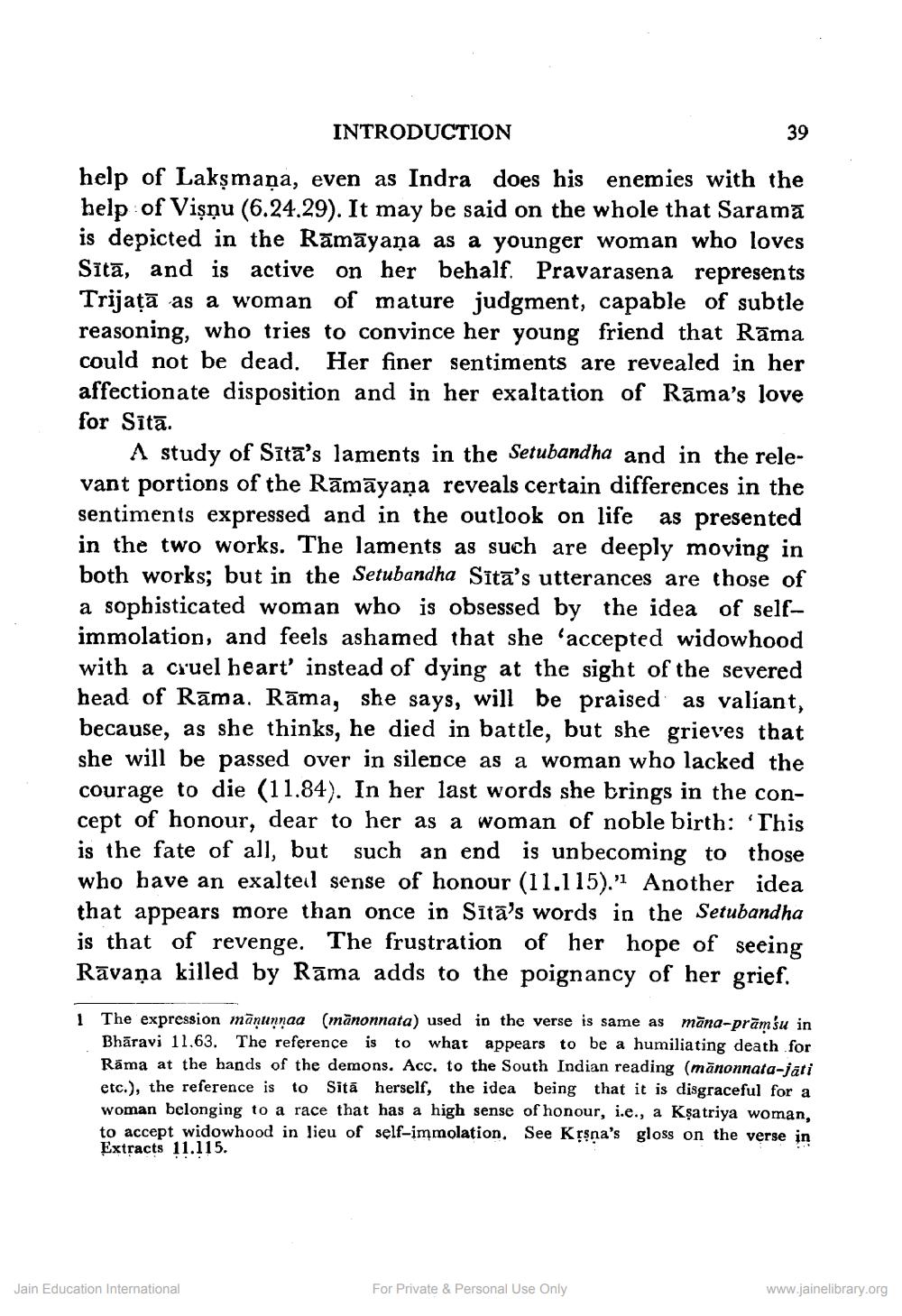________________
INTRODUCTION
help of Lakṣmaṇa, even as Indra does his enemies with the help of Visņu (6.24.29). It may be said on the whole that Saramā is depicted in the Rāmāyaṇa as a younger woman who loves Sītā, and is active on her behalf. Pravarasena represents Trijatā as a woman of mature judgment, capable of subtle reasoning, who tries to convince her young friend that Rama could not be dead. Her finer sentiments are revealed in her affectionate disposition and in her exaltation of Rama's love for Sita.
A study of Sita's laments in the Setubandha and in the relevant portions of the Rāmāyaṇa reveals certain differences in the sentiments expressed and in the outlook on life as presented in the two works. The laments as such are deeply moving in both works; but in the Setubandha Sita's utterances are those of a sophisticated woman who is obsessed by the idea of selfimmolation, and feels ashamed that she 'accepted widowhood with a cruel heart' instead of dying at the sight of the severed head of Rama. Rama, she says, will be praised as valiant, because, as she thinks, he died in battle, but she grieves that she will be passed over in silence as a woman who lacked the courage to die (11.84). In her last words she brings in the concept of honour, dear to her as a woman of noble birth: 'This is the fate of all, but such an end is unbecoming to those who have an exalted sense of honour (11.115)." Another idea that appears more than once in Sita's words in the Setubandha is that of revenge. The frustration of her hope of seeing Ravaṇa killed by Rama adds to the poignancy of her grief.
39
1 The expression manunnaa (manonnata) used in the verse is same as mana-prāmsu in Bharavi 11.63. The reference is to what appears to be a humiliating death for Rama at the hands of the demons. Acc. to the South Indian reading (mānonnata-jāti etc.), the reference is to Sita herself, the idea being that it is disgraceful for a woman belonging to a race that has a high sense of honour, i.e., a Ksatriya woman, to accept widowhood in lieu of self-immolation. See Kṛṣṇa's gloss on the verse in Extracts 11.115.
Jain Education International
For Private & Personal Use Only
www.jainelibrary.org




